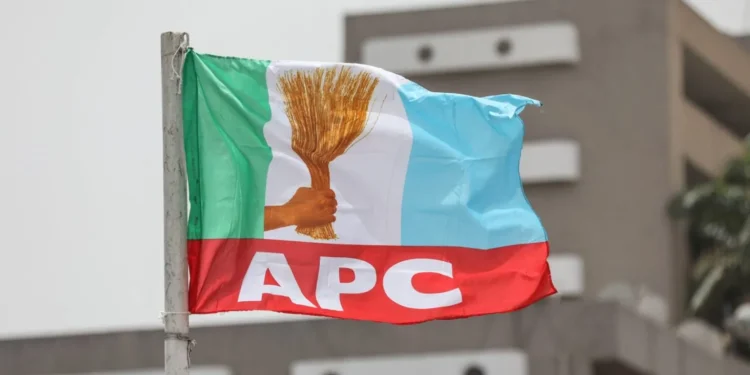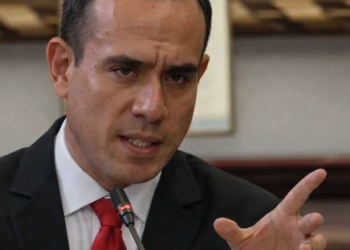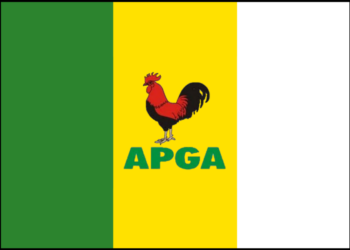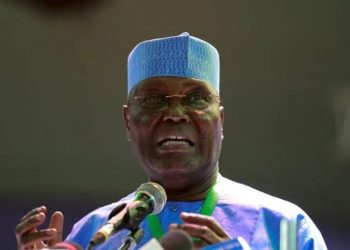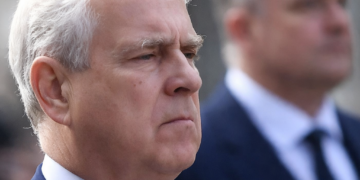The latest wave of gubernatorial defections from the Peoples Democratic Party (PDP) to the ruling All Progressives Congress (APC) is a political earthquake that has fundamentally redrawn Nigeria’s electoral map and thrown opposition parties in chaos.
The formal dumping of the PDP by Enugu State Governor Peter Mbah, closely following the exits of Bayelsa’s Duoye Diri, Delta’s Sheriff Obvwevori, and Akwa Ibom’s Umo Eno, confirms a devastating reality that the once impregnable fortresses of the South-South and South-East are fast crumbling.
This isn’t merely a news reporting of political moves; it is also an analysis of the death of organized opposition and the dangerous slide towards a de facto one-party state in key regions. President Bola Tinubu’s successful demolition of the PDP’s southern flank is less a sign of his regional popularity and more an indictment of the opposition’s terminal disease —a desperate survival instinct that prioritizes personal ambition over a democratic resistance.

How Governor Defections Undermine Voter Mandate and Governance
The stated reason for Enugu Governor Peter Mbah’s defection (“to connect the South-Eastern state to the central government”) is a thinly veiled admission of the transactional nature of Nigerian politics. This phenomenon, which has seen four PDP governors in the South-South and South-East move to the APC, is a profound insult to the electorate.
These governors were elected on the platform, manifesto, and goodwill of the PDP. Their switch effectively voids the mandate given by the very people they govern, prioritizing access to federal power and resources over the integrity of their electoral promises.
Public Affairs Analyst Dr. Nduka Odo is correct with his analysis that the PDP is a “sinking ship,” and politicians are seeking sanctuary. But the analysis must go deeper: the governors are not only saving their careers, they are also using the instruments of state power to eliminate regional opposition to the central government.
This creates an environment of minimal regional resistance for Tinubu’s potential 2027 re-election bid, as even critics like Chief Bode George and Ray Nnaji admit to a breakdown in PDP internal wrangling and weak opposition coordination. The immediate impact of this political carpet-crossing is a stifling of dissent, a lowering of democratic accountability, and an inevitable shift of state resources to align with federal priorities, regardless of local need or popular will.
Why It Matters
The crisis does not only affect the PDP; it’s also about the future of Nigerian democracy. The Constitution allows lawmakers’ seats to be declared vacant upon defection, but this measure must be extended to governors and other political executives. A clear legal provision, enforced by a non-partisan judiciary, is necessary to make the cost of gubernatorial defection so high (for instance, requiring them to relinquish their office) that the practice ceases to be a viable political strategy. This will force politicians to focus on party loyalty and electoral integrity rather than political opportunism.
Consequently, PDP must overhaul its national leadership and internal democracy. As Ray Nnaji rightly queried, the PDP national leadership has failed to act decisively. The party must implement an urgent and comprehensive internal reform, including transparent leadership selection, rigorous party discipline, and aggressive court action against defectors.
The party must stop its protracted leadership crisis and show the public it is capable of self-governance before it can lead the country. The former last loyal stalwarts like Diri only left because the national body was seen as weak and incapable of survival.
Finally, the assertion by Ray Nnaji that voters, not political elites, decide outcomes is very important. The massive support for Peter Obi’s Labour Party (LP) in the 2023 election (even in states with entrenched PDP structures) proves that a shift in political loyalty among the people is already underway. Third-party movements and the LP must capitalize on this voter-elite disconnect, building genuine grassroots support structures that can challenge the financial and structural dominance of the APC. The strength of the opposition now lies in the newly awakened consciousness of the voting public and not in the sinking ships of the old guard.

